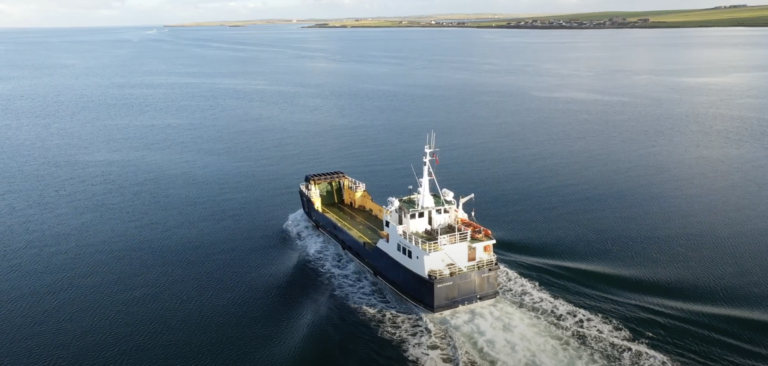The recently announced US$3m (£2.2m) HIMET (Hydrogen in an Integrated Maritime Energy Transition) project will investigate a range of maritime solutions for the decarbonization of ferries and cruise terminal operations in the Orkney area.
Led by Scottish company EMEC Hydrogen, based in Orkney, the project’s partners will design systems such as a hydrogen storage system and an onboard auxiliary power supply that utilizes a hydrogen fuel cell to reduce carbon emissions from ferries. Furthermore, the team plans to run a conventional ferry propulsion engine on pure hydrogen for testing purposes.
For the development of shore-side power, a crew welfare facility at the cruise terminal in Hatston will use power generated by a hydrogen engine. EMEC is to further evaluate microgrid solutions to power ferry terminals.
“EMEC foresees significant opportunities in maritime innovation, with hydrogen and hydrogen-derivative fuels expected to play a vital role in decarbonizing the sector,” commented James Walker, EMEC’s hydrogen development manager.
He continued, “Building on the knowledge and experience from various green hydrogen projects that have instigated the development of a hydrogen economy locally, the HIMET project will showcase emerging and innovative technologies that will help pave the way to decarbonizing maritime activities.”
Following the demonstration, partners of the project, made up of a consortium of developers and sector experts, will facilitate the uptake of such technologies in the UK and other markets, carrying out further demonstrations.
The project was awarded funding by the UK Department for Transport’s Clean Maritime Demonstration Competition and will be delivered in partnership with Innovate UK.
“As the UK prepares to host COP26 in the maritime city of Glasgow, it is great that we can announce funding for these fantastic projects in the maritime sector that will help the UK meet its net zero goals,” explained Simon Edmonds, deputy executive chair and chief business officer, Innovate UK.



